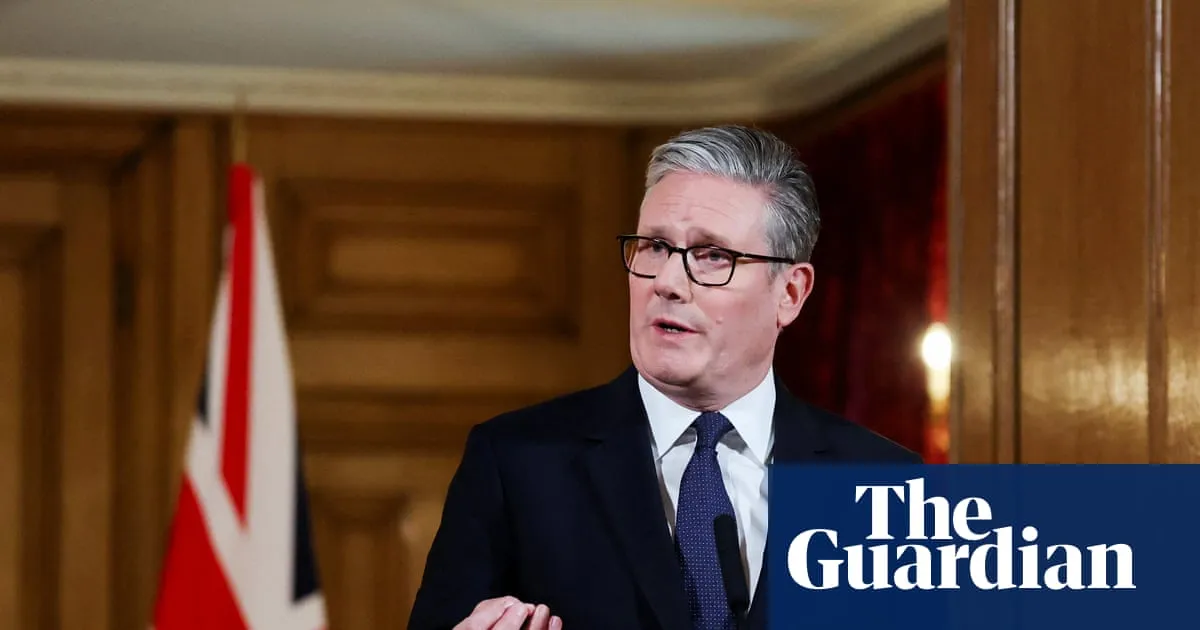
A significant shift is occurring in international politics as a growing number of Israel's allies are formally recognizing the state of Palestine. This movement is part of a broader strategy aimed at isolating Hamas and countering attempts by the Israeli government to undermine the prospect of a viable Palestinian homeland. On Sunday, the UK, Canada, and Australia made separate but coordinated announcements declaring their recognition of Palestinian statehood, marking the first time members of the G7 advanced economies have taken this step.
Portugal is anticipated to follow suit with its announcement later on the same day. Other nations joining the ranks of the 147 UN member states that recognize Palestine include Belgium, France, Luxembourg, Malta, and potentially New Zealand and Liechtenstein. These countries are expected to make their formal declarations on Monday during a special UN conference aimed at reviving the dwindling cause of a two-state solution to the ongoing Palestinian-Israeli conflict.
The timing of these announcements has been influenced by various factors, including a desire to respect the Jewish New Year, which led some, like the UK, to advance their declarations. The conference is co-chaired by France and Saudi Arabia, although the Saudi Crown Prince, Mohammed bin Salman, is absent, while French President Emmanuel Macron will be in attendance. This delicate and, in some respects, symbolic initiative has the potential to escalate tensions, particularly as there are concerns that Israel may respond by annexing parts of the West Bank, which could lead to European trade sanctions and further political isolation for Israel, including a possible suspension from the UN.
The Israeli response to these developments is also intertwined with the United States' stance on potential military action against Iran regarding its nuclear program. Canadian Prime Minister Mark Carney stated on X, “Canada recognizes the state of Palestine and offers our partnership in building the promise of a peaceful future.” Similarly, Australia's Prime Minister Anthony Albanese emphasized that the recognition acknowledges the legitimate aspirations of the Palestinian people to establish their own state.
British Prime Minister Keir Starmer remarked, “In the face of the growing horrors in the Middle East, we are acting to keep alive the possibility of peace and a two-state solution. That means a safe and secure Israel, alongside a viable Palestinian state. At the moment, we have neither.” These declarations come with various conditions and reflect the conflicting pressures domestic governments face, including backlash from Israel and from families of hostages who argue that such moves effectively reward Hamas for its attacks on Israel.
UN Secretary General António Guterres has urged countries not to be intimidated by Israel’s threats to annex parts of the West Bank. Ministers admit that the decisions to recognize Palestine have been motivated by mounting global outrage at Israel’s military strategies in Gaza, particularly its plans to approve new settlements in the West Bank's E1 corridor, which would disrupt territorial continuity and sever connections with East Jerusalem.
At the heart of the French proposal, which has received full endorsement from Arab states, is the idea of integrating recognition into a broader process that includes a reformed, democratically elected Palestinian Authority (PA). This authority would ideally replace a disarmed and dismantled Hamas in Gaza in the event of a ceasefire. While Germany, Italy, and several Baltic states remain hesitant to recognize Palestine, internal pressures within the Italian coalition government are rising to defy the US stance.
President Macron, identified by Israel as a central figure in this surge of recognition, warned on Israel’s Channel 12 that the current Israeli government’s approach risks destroying the possibility of a two-state solution. He emphasized that an emergency has arisen due to the expansion of major settlements, stating that the world is at a critical juncture where the proposal of two states may soon become impossible. Macron insists that this recognition does not reward Hamas, as the group seeks the establishment of an Islamic state and the destruction of Israel, which contradicts the principles of a two-state solution.
The United States and Israel have been boycotting the preparatory meetings for the upcoming UN conference on the two-state solution. Central to their disagreements is the belief that the Palestinian Authority, led by the aging President Mahmoud Abbas, cannot be a credible partner for peace. The US State Department has attempted to block Abbas from addressing the UN by denying him a visa, which led to a significant vote allowing him to speak via video link. Observers will closely watch his speech to see if he elaborates on previously promised reforms or condemns what he describes as genocide in Gaza.
Western ministers acknowledge that a significant weakness in their plan for the future of a Palestinian state, aside from the lack of Israeli support, is their limited leverage over the PA’s reform and the disarmament of Hamas. Nevertheless, the French government argues that their initiative has already prompted concessions from Abbas, including his condemnation of the October 7 attacks as acts of terrorism.
Macron’s vision for the future involves deploying a UN-mandated international force to secure Gaza and enhance police training, with stringent vetting by Israel. However, these proposals have been categorically rejected by Israeli Prime Minister Netanyahu. Macron offered to visit Israel to discuss the French perspective, but Netanyahu insisted that France must first abandon its recognition proposal. This impasse has led Macron to warn that the ongoing military operations in Gaza City are detrimental to Israel’s image and credibility, risking widespread civilian casualties and further tarnishing Israel’s standing in the international community.
In a bid to sustain the PA reform agenda, France, along with Saudi Arabia, Norway, and Spain, is working to counter Israeli efforts to financially destabilize the PA by retaining billions owed to it. This coalition is rallying support for an emergency aid package aimed at preventing the PA's collapse, with the goal of raising over $200 million in the next six months.